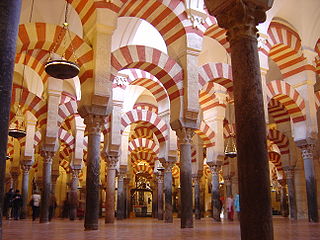The European Studies Group here at Iowa normally trends towards modern history, so its talks and seminars often put me outside of my historical comfort zone (“out of my historical comfort zone” being defined as “it happened after 1400”). Friday’s talk was given by one of our medievalist contingent—Denise Filios, an associate professor in the Department of Spanish and Portuguese—and while I can’t claim to know a whole lot more about the history of al-Andalus or the early Islamic world than I do about, say, 20th century Italy, it’s funny how the fact that it’s classified as “medieval” puts me more at ease.
Especially funny since a prominent aspect of Professor Filios’ talk was challenging the existing (geographical and/or ethnic) categorisations of medieval history—categorisations which after all are in large part the product of the concerns of nineteenth century nationalist movements, whose rise helped to fuel a new interest in medieval history. Was this Spanish history Filios was writing, or Andalusian, or Iberian, or something else?
Unsurprisingly, we didn’t come up with a definitive answer to that question in the space of an hour and fifteen minutes! Still, we had an interesting introduction to a kind of institution about which I really knew nothing. Filios focused on Islamic literary salons in al-Andalus, either those which occurred among social (élite) equals and those which took place in the ruler’s court. She examined how they functioned as sites in which historical narratives could be performed, created and challenged; social occasions in which an individual’s adab (which I understood to mean a combination of etiquette, right action, and gentlemanly refinement) could be displayed. The particular texts which Filios discussed, then, are less useful as narrative accounts of the politics of 9th century Iberia than they are for understanding how their authors understood appropriate male-gendered conduct and the exercise of power.
There’s a lot to chew over here, I think, in terms of how medieval peoples approached the writing of “history”. One of the first questions I have my students ask of a text is who the intended audience is, but I wonder if I shouldn’t also start also having them think about what utility the text may have, personally, for the author—are they using history to think through their own personal beliefs about righteous conduct? I also got curious for the first time as to whether many studies have been done comparing these Andalusian histories with the Christian ones produced during and after the Reconquista, or indeed with the other kinds of historical narratives produced across medieval Europe. I guess I’ll be adding some books to my towering ‘to read’ stack soon.
